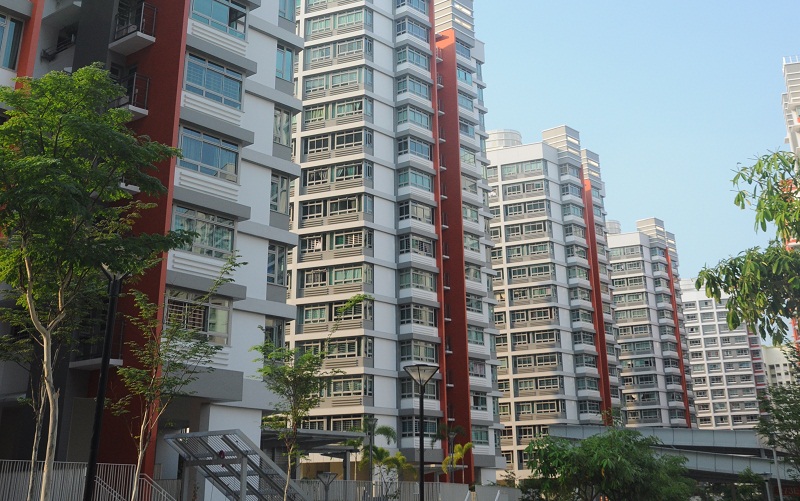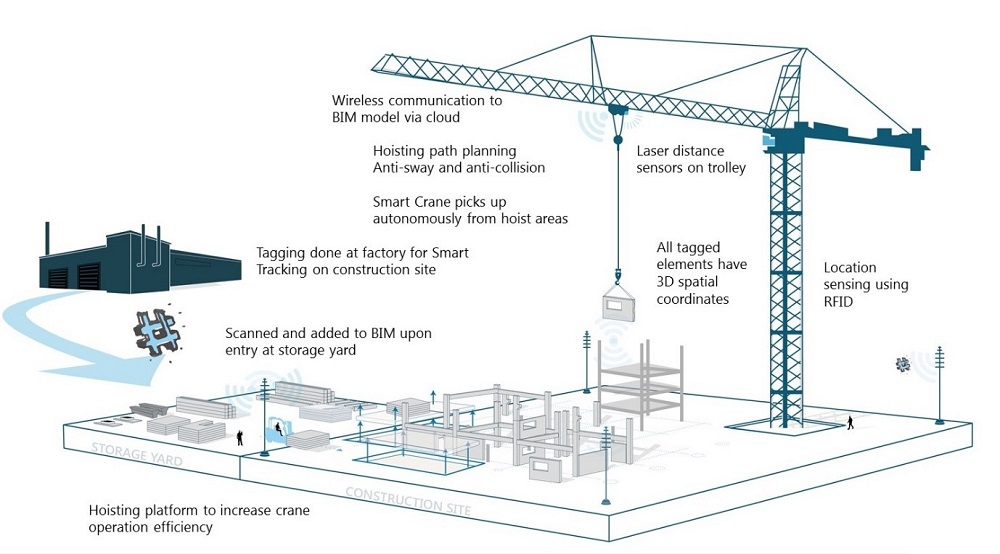Always ready to embrace the future and adopt the latest technology, Singapore’s Housing and Development Board (HDB) has inked two new research and development agreements with the Nanyang Technological University (NTU) and the Singapore University of Technology and Design (SUTD) worth SGD 10.7 million to leverage the power of Big Data, data analytics and smart technology to boost construction productivity and safety, as well as to develop a new social framework to build stronger communities.
HDB signed a SGD4.7 million collaboration with the NTU to develop a Smart Integrated Construction System (SICS). This system will harness smart technology, through the use of smart sensors and automation, to transform traditional construction work processes and boost productivity.
It signed another MOU with the SUTD to embark on a study called the New Urban Kampung research programme. The study will adopt cutting-edge modelling tools to analyse shifts in socio-demographic factors, and create new housing solutions in tandem with residents’ evolving needs and aspirations.
The MOU was signed in the presence of Minister for National Development and second Minister for Finance Lawrence Wong.
HDB’s Chief Executive Officer, Dr Cheong Koon Hean said, “Smart construction solutions will enable us to build more productively and achieve better quality. The new R&D partnerships will further augment our roadmap to better living in HDB Towns, as we work towards creating homes of the future.”
SICS to enhance worksite productivity and safety
Smart Integrated Construction System (SICS) will be developed by HDB and NTU for facilitating data-sharing and synergising construction processes across industry partners through a central digital platform. The platform will be powered by a smart tracking system to better manage the logistics of construction inventory such as precast components for HDB buildings.
HDB elaborated on the key features of the SICS system through a press release.
Integrated Building Information System (IBIS) – The core of the SICS, this central digital database will serve as a collaborative workspace. Using 3-dimensional modelling of HDB projects as a common platform, industry partners in the entire construction supply chain can log in real-time information and progress updates on the project from their dispersed locations. This streamlines information and speeds up data-sharing amongst the different partners, including architects, contractors, pre-casters and construction material suppliers, enabling them to better keep track of budgets and timelines.
Smart Tracking System – Supporting the IBIS, the smart tracking system will virtually manage the logistics of construction inventory as they move from various suppliers to the construction site. Smart sensors with geo-tagging capabilities will be attached to building components to help contractors manage the flow of construction materials into the work site, and swiftly identify and correct lapses such as wrong deliveries. This will minimise disruptions to the construction process and enable it to progress smoothly.
Smart Crane System – This will automate the manual hoisting process of building components on site. Through smart sensors embedded in the precast components and a network of sensors placed around the construction site, the Smart Crane System will be able to calculate and determine the quickest and safest hoisting path to mitigate potential collisions and swaying, thereby reducing construction time and improving safety.





